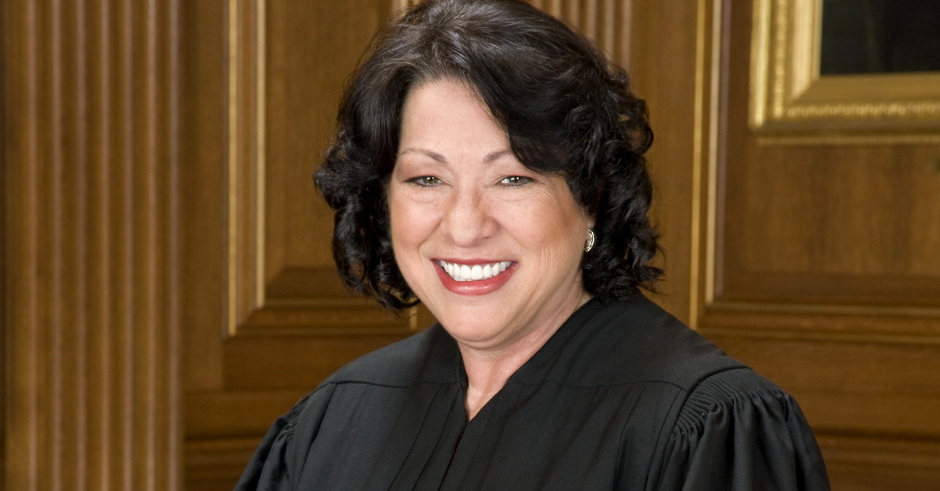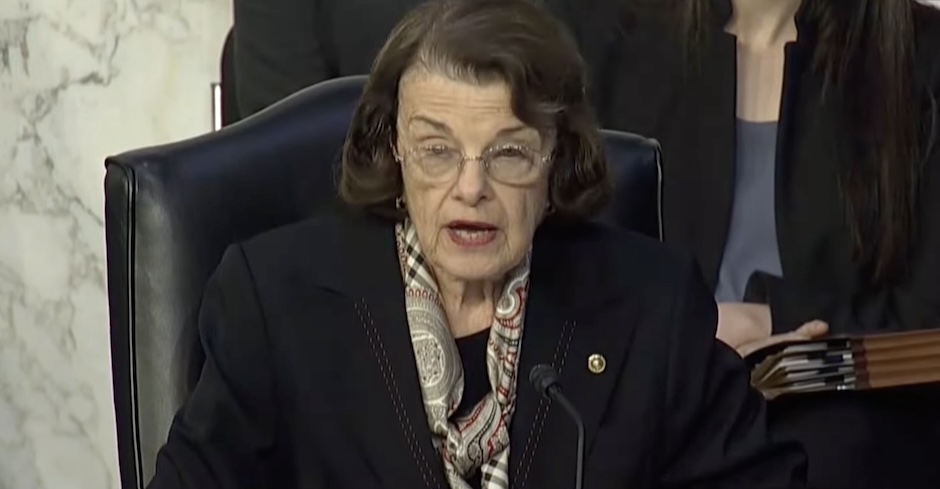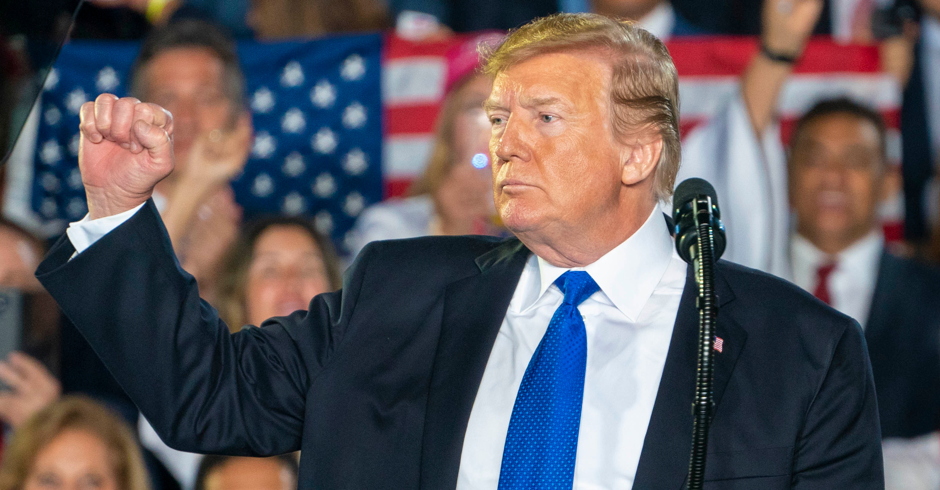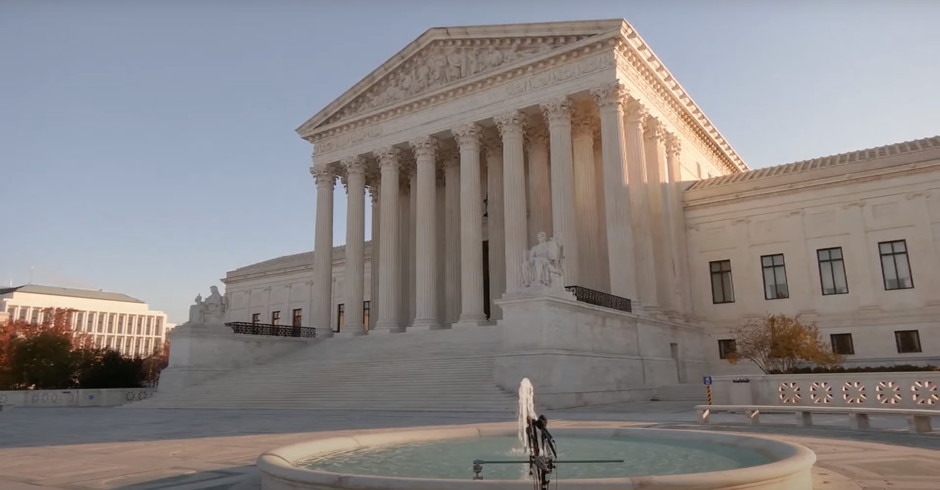ANALYSIS
Sotomayor Slams ‘Embarrassing’ SCOTUS Anti-LGBTQ Decision That Marks ‘Gays and Lesbians for Second-Class Status’

Only on occasion do U.S. Supreme Court Justices read their opinions aloud from the bench. But on Friday Justice Sonia Sotomayor did just that, reading aloud her 38-page dissent to the majority’s 6-3 ruling in favor of a Christian anti-LGBTQ business owner, Lori Smith, who claimed Colorado’s anti-discrimination law prevented her from expanding her design business to include weddings because she refuses to provide that service to same-sex couples. The case is 303 Creative vs. Elenis.
The Court ruled that, “The First Amendment prohibits Colorado from forcing a website designer to create expressive designs speaking messages with which the designer disagrees.”
In her dissent Justice Sotomayor exposed some of the many harms that ruling will cause, and called the “logic” in the majority opinion, written by Justice Neil Gorsuch, “embarrassing.”
“The majority protests that Smith will gladly sell her goods and services to anyone, including same-sex couples,” she wrote. “She just will not sell websites for same-sex weddings. Apparently, a gay or lesbian couple might buy a wedding website for their straight friends. This logic would be amusing if it were not so embarrassing.”
Pointing to a separate legal case, she continues to mock the conservative justices, saying: “I suppose the Heart of Atlanta Motel could have argued that Black people may still rent rooms for their white friends.”
Her dissent also offered a great deal of support and acknowledgment of LGBTQ people and their struggles — past and current.
“Today is a sad day in American constitutional law and in the lives of LGBT people,” Justice Sotomayor wrote. Her dissent was joined by the remaining two liberals on the bench, Justices Elena Sagan and Ketanji Brown Jackson.
“The Supreme Court of the United States declares that a particular kind of business, though open to the public, has a constitutional right to refuse to serve members of a protected class. The Court does so for the first time in its history. By issuing this new license to discriminate in a case brought by a company that seeks to deny same-sex couples the full and equal enjoyment of its services, the immediate, symbolic effect of the decision is to mark gays and lesbians for second-class status.”
“In this way, the decision itself inflicts a kind of stigmatic harm, on top of any harm caused by denials of service. The opinion of the Court is, quite literally, a notice that reads: ‘Some services may be denied to same-sex couples.'”
Justice Sotomayor goes on to acknowledge that “Lesbian, gay, bisexual, and transgender (LGBT) people, no less than anyone else, deserve that dignity and freedom. The movement for LGBT rights, and the resulting expansion of state and local laws to secure gender and sexual minorities’ full and equal enjoyment of publicly available goods and services, is the latest chapter of this great American story.”
“LGBT people have existed for all of human history. And as sure as they have existed, others have sought to deny their existence, and to exclude them from public life. Those who would subordinate LGBT people have often done so with the backing of law.”
READ MORE: Biden Explains Calling Supreme Court ‘Not Normal’ While Warning to Not ‘Politicize It’
Justice Sotomayor began her dissent by reminding her fellow justices, “Five years ago, this Court recognized the ‘general rule’ that religious and philosophical objections to gay marriage ‘do not allow business owners and other actors in the economy and in society to deny protected persons equal access to goods and services under a neutral and generally applicable public accommodations law.”
“The Court also recognized the ‘serious stigma’ that would result if ‘purveyors of goods and services who object to gay marriages for moral and religious reasons’ were ‘allowed to put up signs saying ‘no goods or services will be sold if they will be used for gay marriages.’ ‘ ”
Adding that, “a public accommodations law ensures equal dignity in the common market,” Sotomayor’s empathy continues:
“Around the country, there has been a backlash to the movement for liberty and equality for gender and sexual minorities. New forms of inclusion have been met with reactionary exclusion. This is heartbreaking. Sadly, it is also familiar. When the civil rights and women’s rights movements sought equality in public life, some public establishments refused. Some even claimed, based on sincere religious beliefs, constitutional rights to discriminate. The brave Justices who once sat on this Court decisively rejected those claims.”
Justice Sotomayor also ensured her concerns were supported by real-life, actual examples.
Citing case law, she states:
When a young Jewish girl and her parents come across a business with a sign out front that says, “ ‘No dogs or Jews allowed,’” the fact that another business might serve her family does not redress that “stigmatizing injury,” … Or, put another way, “the hardship Jackie Robinson suffered when on the road” with his base- ball team “was not an inability to find some hotel that would have him; it was the indignity of not being allowed to stay in the same hotel as his white teammates.”
Sotomayor continues, writing, “imagine a funeral home in rural Mississippi agrees to transport and cremate the body of an elderly man who has passed away, and to host a memorial lunch. Upon learning that the man’s surviving spouse is also a man, however, the funeral home refuses to deal with the family.”
“Grief stricken, and now isolated and humiliated, the family desperately searches for another funeral home that will take the body. They eventually find one more than 70 miles away.”
Sotomayor also offers another example, which does not appear to be from case law.
“A professional photographer is generally free to choose her subjects. She can make a living taking photos of flowers or celebrities. The State does not regulate that choice. If the photographer opens a portrait photography business to the public, however, the business may not deny to any person, because of race, sex, national origin, or other protected characteristic, the full and equal enjoyment of whatever services the business chooses to offer. That is so even though portrait photography services are customized and expressive. If the business offers school photos, it may not deny those services to multiracial children because the owner does not want to create any speech indicating that interracial couples are acceptable. If the business offers corporate headshots, it may not deny those services to women because the owner believes a woman’s place is in the home. And if the business offers passport photos, it may not deny those services to Mexican Americans because the owner opposes immigration from Mexico,” she writes. “The same is true for sexual-orientation discrimination.”
In her conclusion, Justice Sotomayor writes, “The unattractive lesson of the majority opinion is this: What’s mine is mine, and what’s yours is yours. The lesson of the history of public accommodations laws is altogether different. It is that in a free and democratic society, there can be no social castes. And for that to be true, it must be true in the public market. For the ‘promise of freedom’ is an empty one if the Government is ‘powerless to assure that a dollar in the hands of [one person] will purchase the same thing as a dollar in the hands of a[nother].'”
“Because the Court today retreats from that promise, I dissent.”
Enjoy this piece?
… then let us make a small request. The New Civil Rights Movement depends on readers like you to meet our ongoing expenses and continue producing quality progressive journalism. Three Silicon Valley giants consume 70 percent of all online advertising dollars, so we need your help to continue doing what we do.
NCRM is independent. You won’t find mainstream media bias here. From unflinching coverage of religious extremism, to spotlighting efforts to roll back our rights, NCRM continues to speak truth to power. America needs independent voices like NCRM to be sure no one is forgotten.
Every reader contribution, whatever the amount, makes a tremendous difference. Help ensure NCRM remains independent long into the future. Support progressive journalism with a one-time contribution to NCRM, or click here to become a subscriber. Thank you. Click here to donate by check.
 |

























